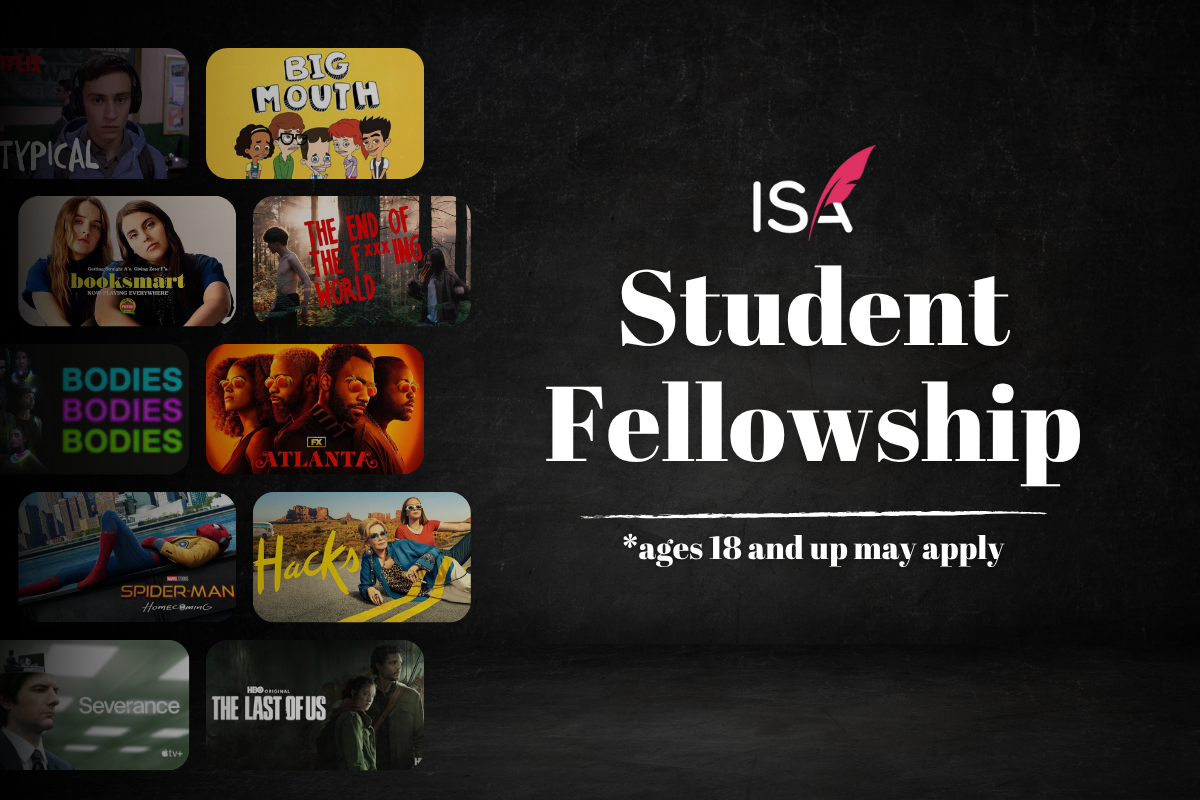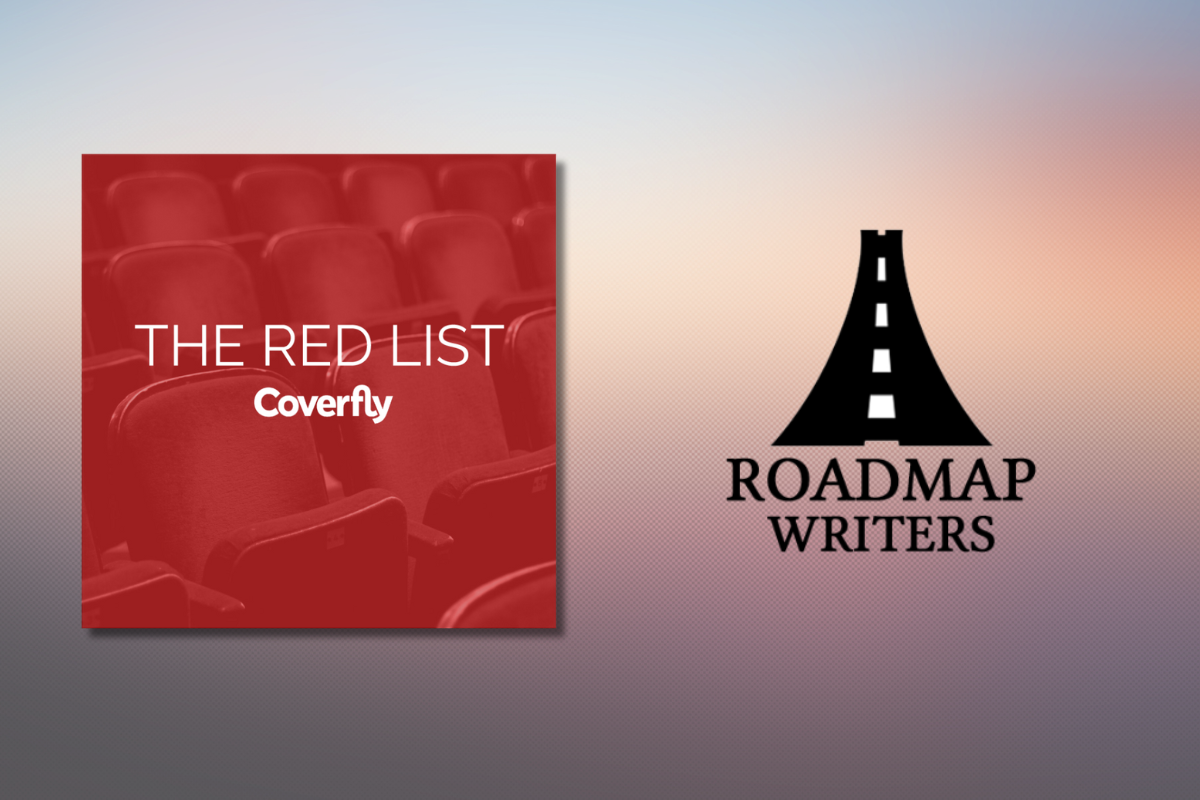The Era of the Multi-Hyphenate: An Interview With Pipeline Media Group’s Matt Misetich [SERIES]
This series is an exploration of the multi-hyphenate phenomenon. We dive into the insights of experts who are either multi-hyphenates or have witnessed the evolution of the screenwriting profession firsthand. They share their experiences and perspectives to set those screenwriters who’d like to test the multi-hyphenate waters in the right direction.
Creative boundaries are fading. The traditional creative landscape looked somewhat like an open-plan office full of glass cubicles, with one artist per partitioned-off area. You were a screenwriter, an author, a director, an actor—anything, really, as long as you stuck with one job title. Triple threats were an exception to the rule—and, as the term implies, intimidating as such.
But that’s an obsolete way of thinking. Gone are the ‘either/or days.’ Today’s and tomorrow’s creatives are multi-hyphenates. The term ‘writer’ now represents a range of possibilities, some extending beyond the written word.
It’s a transformation that comes with opportunities and challenges. Overall, though, the era of the multi-hyphenate is one of great potential. As a writer, you can explore and innovate. You’re allowed to create beyond the confines of your writing niche. You’ve got a chance to expand your skills and become a better storyteller.
When it comes to sharing your narratives, you’ve got a range of options—screenplays, books, short stories, essays, poems, features, documentaries, and podcasts, to name a few. But these are just mediums that help convey what should always come first—your story.
“Your proficiency is in storytelling”
“At the end of the day, your proficiency is in storytelling,” says Matt Misetich, senior executive and partner at Pipeline Media Group. He believes it’s paramount that you determine the right medium for your story, and his company goes out of its way to facilitate this for creatives. What started out as ‘Script Pipeline Into Motion Pictures’—established by founder and current CEO Chadwick Clough in 1999—has now evolved into Pipeline Media Group, whose script, book, and film divisions seek unique voices in the broader arts landscape. Matt oversees all divisions and the management of Pipeline Artists, a platform for creatives that aims to elevate authentic voices in film, publishing, and beyond.
Having reviewed more than 30,000 pitches, screenplays, pilots, books, and short films, Matt is well equipped to shed light on the potential of a multi-hyphenate career.
“I think that writers have been so isolated in their own bubble,” he says. “It’s always been like, ‘Well, I wanted to be a screenwriter, so I’m just going to stay on that track.’ I don’t think it’s quite like that anymore.”
These days, Matt often asks Script Pipeline contest winners and finalists if they’ve considered writing fiction. “I’m annoying enough screenwriters,” he jokes. But as it turns out, many are open to the idea, and it tends to pay off. “Some of our former winners have adapted their scripts into novels and gotten them published, and the books have done really well,” Matt says. He goes on to explain it can have a somewhat ironic snowball effect—“All of a sudden, it increases their TV chances. Because now there’s IP behind it, right?”
“There are just all these different roundabout ways to get stuff made”
As a profession, screenwriting has changed. According to Matt, the field has gotten a lot more competitive, which has raised the bar. “Writers have gotten significantly better over the last 10 to 15 years,” he says, alluding to the range of diverse storytellers and first voices. “There are more good scripts out there now.”
Although Matt has observed that there’s more openness to stories that veer from the norm, he also believes the industry is still a bit stuck in the zone of IP and superhero movies. “So a lot has changed, but a lot hasn’t changed.”
Yet, change is what’s usually on Matt’s mind—though it’s never for the sake of transforming, or joining the latest trend. Matt refuses to call himself a visionary, but he is a forward-thinking creative who’s devoted the biggest part of his working life to advancing the careers of those he believes in. Sometimes, that means he needs to break a boundary or two. When Matt came up with the idea for Pipeline Artists, he hoped to create synergy by bringing a few disjointed macro-communities closer together—publishing, screenwriting and TV, and filmmaking. “There was very little crossover,” he says, explaining that authors didn’t know much about the film and TV world and vice versa. “And none of them knew where directors and talent were really coming from.”
Matt wanted to push everybody under the same umbrella—not to create generalists, but to help specialists deepen their storytelling skills, enhance their industry knowledge, and expand their horizons. He looked for a way to help them learn about other disciplines and perhaps explore other mediums.
Pipeline Artists, which is managed by editor-in-chief Jeanne Veillette Bowerman and Matt, has been built on this philosophy—and Matt believes it’s where the world is going. Screenwriters and TV writers will likely transition into fiction, while many novelists might also commit to screenwriting. And when trying something different, Matt believes, “they might find they’re going to be just as good at that, if not better.”
“The hard part is already over with”
A multi-hyphenate career can be very rewarding, but you can’t build one overnight. Stamina, inquisitiveness, and commitment are indispensable, as are adaptability and an open mind. Matt has observed that many writers are reluctant to explore new creative territories because they think there will be a big learning curve. “You do have to focus on something and put so much time into it to be proficient,” he says. “You don’t want to waste hundreds of hours on learning a new thing.”
But it isn’t that new if you’ve already mastered the art of storytelling. “Changing to a new medium doesn’t have to be as big a hurdle as you think it is,” Matt says. He doesn’t mean it won’t be challenging. If, for example, you want to turn your screenplay into a book, you’ll have to learn the craft of fiction writing and get up to speed on the publishing industry’s demands. “But at the same time,” Matt explains, “the hard part is already over with. You know how to tell a good story.”
“It’s the same process repeated, no matter what the medium is”
Where to start if you want to explore a different creative realm?
If you ask Matt, it’s not necessary to devour dozens of craft books. Instead, he recommends that you familiarize yourself with your chosen writing niche and try your hand at it.
So what if, for example, you’re a screenwriter who’s interested in fiction writing? “Read a bunch of short stories,” Matt says. “Then come up with a good idea and just write one, and another one, and another one.”
The next step is to share your work with others. Matt recommends that you pick the story you like the most, edit it, and send it out to a journal or platform that doesn’t charge submission fees. At this stage, you’re just looking to test the waters. Your story might get published, and it might not. Your decision to further explore this new territory probably shouldn’t depend on it, since it usually takes a while to get your work out into the world. The question you should answer for yourself during the process is whether you feel it’s been worth the effort. If you think you’re onto something, you can tackle a more comprehensive project—in this case, a book.
“Try writing a novel, or adapt one of the scripts you wrote into a book,” Matt says. “NaNoWriMo is every November, and it gives you a good jumpstart and kick to write 50,000 words in a month. I did it last year and then realized that I wanted to go back to fiction writing.”
Use Research to Write Better Stories: Techniques for Targeted and Free Research
“There is an art to knowing who to align yourself with”
With so many options to choose from, there is the pitfall of spreading yourself too thin—which means you won’t do anything well. “Then you start rushing it,” Matt says. “The book is not ready, and you’re going to get a bunch of rejections and get too discouraged.”
If you want to avoid this negative cycle, it’s best to explore one new medium at a time. “You can’t do everything.”
What’s also crucial is that you surround yourself with reliable, supportive people. “If someone just strikes you as off, don’t try and force it,” Matt says. “Even if there’s potential that this person might be able to advance your career. Just move on.”
That’s especially important because not every project you start will be successful. To increase your chances of getting it made and make the process rewarding, you will want to join forces with like-minded people who have a genuine love of storytelling. Matt says, “There is an art to knowing—not just who to collaborate with, but who to align yourself with.”
He recommends that you listen to your inner voice in these cases—like he did when he first met Script Pipeline contest winners Bret Raybould and Cristian Duran, who wrote a screenplay titled Race: The Movie. “I knew right away that they were very humble, very grounded people, and they’re probably going to be successful,” Matt says. “They weren’t thinking about their own self-interest, really. They just wanted to put a good piece of art out into the world, and when you have that sort of perspective, good things may happen to you.”
“Race: The Movie was hard to sell as a script, but look how well it worked as a play”
Good things did happen to Bret and Cristian, two stand-up comedians who wrote a satirical comedy about an important topic. Matt explains that Race: The Movie “touches upon the fictitious origins of racism, but in a very honest and very forward-thinking way.” When Script Pipeline sent out the winning script, Matt was repeatedly told that “no one is ever making this movie.” After a while, the project seemed to have hit a cul-de-sac. Given the story and budget, it wasn’t the type of screenplay Bret and Cristian could turn into a short film or independently produce.
But no one was ready to give up on the story. At one point, Matt suggested that they turn it into a play (although he readily admits he wasn’t sure whose idea it was first). He was half joking, but the two writers cobbled together a cast and got to work. “Things went well from there,” Matt says.
Race: The Movie: The Play—the title Bret and Cristian came up with to indicate they’d adapted their script for the stage—won the New York Theater Festival’s Best Script and Best Actor awards, got picked up, and had a highly successful run at SoHo Playhouse in New York. Bret starred in the play alongside SNL’s Dean Edwards. Cristian directed it. Matt signed on as an associate producer and flew out from LA to see it in May 2023. He invited me to join him. That night, we watched a group of brilliant creatives tell their story —in their own way, on their own conditions—because they felt it had to be told. “There was so much energy in that room,” Matt says. “I’m glad that you got to witness it firsthand, too, because it was such a moment for them.”
During the post-play Q&A, Bret asked the audience to give Matt a round of applause. There was a sense of gratitude—not just from Bret and Cristian, but from everyone in the room. The play is a catalyst for debate—a unique way to raise issues many struggle to bring up. That was the main reason why Matt had invested in it. He was visibly proud of what Bret and Cristian had created, but he didn’t seem very comfortable being spotlighted. In the past 12 years, I’ve come to know him as a reliable, loyal friend who never boasts about his accomplishments, even when they’re absolutely worth mentioning. He sinks his teeth into (passion) projects and works tirelessly to get things done for others but prefers to leave the spotlight to them. Yet, that night called for giving credit where credit was due.
“That’s a night I shall never forget, as they say,” Matt states with conviction. He points out that Bret and Cristian’s story shows how important it is for writers to be open-minded. “Race: The Movie was hard to sell as a script, but look how well it worked as a play. It might come back and become a movie one day. Right?”
“You’re going to hop around a lot, and that’s OK”
A play is just one of many ways to tell your story. The point is to be open to possibilities, especially if your originally intended medium is getting you nowhere after many attempts. You don’t have to give up on it, but you might want to explore other mediums, too. Maybe you’ll circle back to the first. Maybe not.
“You’re going to hop around a lot, I think, and that’s OK,” Matt says. He often meets 20-somethings who feel that they have to know exactly what they’ll be doing for the rest of their lives. It leads to a lot of frustration. And for most, it doesn’t have to be that way anymore. There are many more opportunities now than there were years ago. You can be an attorney, a screenwriter, and a web designer. Or, an elementary teacher, a playwright, and a poet. Was it impossible to create careers like those two decades ago? Probably not. But it was definitely uncommon—and much more difficult. As Matt puts it, now “you dabble in a bunch of different things until you find your path.” And that path might consist of several creative endeavors.
“Creative people are very good at finding a new way to produce their own stuff”
These are extremely difficult times for many screenwriters. With the ongoing strike, the road ahead seems uncertain. “I don’t know what’s going to happen at the end,” Matt says, calling it “one of the worst, most dramatic labor strikes in modern U.S. history.” He does believe writers will get a better deal eventually—although the independent film world might be affected for a while, and TV will likely take a hit due to a decrease in staff writing jobs. Ultimately, though, he thinks writers will improve their craft and find their way. “Maybe they’ll move to features, maybe they’ll move to books, maybe they’ll get back into TV,” he says. “The dedicated ones will survive in the long term.”
And what about screenwriters? According to Matt, many of them will probably venture into fiction writing. “That’s going to mean more work for a section of the publishing industry that already feels pretty overstressed and understaffed,” he says. So, what if this migration happens? “The bar will keep going up and up. With better, more relevant stories, you just have to be a really good writer to make it.”
So, what is “a really good writer” these days—someone who focuses on a single medium or a multi-hyphenate? Everyone should decide that for themselves. But in today’s volatile world, you might not want to put all your eggs in one basket.
Contemporary audiences consume stories through a variety of mediums, which means there are many different ways to reach them. Often, it’s not necessary to put yourself in a make-or-break situation. The real question is if you’re willing and able to share your story with the audience you believe it will resonate with, regardless of the medium.
Ask the Coach: Odds & Ends — Finding Your Voice, Getting Unstuck, and Abandoning Scripts for Books
There is no right or wrong answer. If you feel your story won’t come into its own if it isn’t told in screenplay format, don’t turn it into a book or a play. Just be aware of the possibilities out there, and perhaps experiment with one or two options before you decide what works for you.
As Race: The Movie: The Play shows, creatives take matters into their own hands, think outside of the box, and build projects from the ground up. It’s not a completely new phenomenon. But the world has changed. It’s easier to be a multi-hyphenate now. Technology enables us to connect with a wider audience from the comfort of our own homes. The distance between a storyteller and their audience continues to decrease every day—not just for tech reasons, but also because people seem to feel an increasing need to build genuine connections.
For that same reason, today’s creatives are less idolized. They’re more vulnerable and flawed. More human, if you will.
That’s not surprising. Amid digitalization, we’re looking to preserve (and perhaps even reinforce) the human touch. The human connection. Stories are the glue that holds us together—the means we use to bridge our differences and understand each other.
When it comes to storytelling, there’s never truly a dead end. We’ll continue to tell stories because they help us connect, even in unpredictable times like these. Especially then.
Innovative ideas are often born in the worst of circumstances. A multi-hyphenate career might work for you. If you put in the time and effort, it can help you tell a story you believe to be important. It doesn’t matter whether your audience consists of dozens or millions of people. All you want is for your story to make a difference in their lives, tiny or grand as it may be. And there are multiple ways to achieve that.
As Matt says, “Creative people are very good at adapting to the current environment and finding a new way to produce their own stuff. So that, I think, will be OK.”
Watch the interview below. This video has been edited for length and clarity.
Learn more about the craft and business of screenwriting and television writing from our Script University courses!
Annalisa Koukouves is a storyteller, copywriter, and creative writer. In the past 14 years, she has interviewed hundreds of experts in the worlds of art, technology, and business to help them tell their stories in the form of books, scripts, (scientific) articles, essays, opinion pieces, and online content. She was a finalist in the 47th New Millennium Writing Awards and in one of Script Pipeline’s contests. Her work has appeared or is forthcoming in various outlets, including Pipeline Artists, Thrive Global, and Daily Philosophy.
Annalisa is the founder of Key Copy & Content, a storytelling and copywriting business that helps professional storytellers and subject matter experts achieve two goals: to improve their writing skills and to build thought leadership through storytelling. She’s also the creator of Existential Chapters, a philosophical newsletter. Currently, she’s working on a novel.
Annalisa Koukouves | Key Copy & Content | Twitter | Instagram | YouTube







